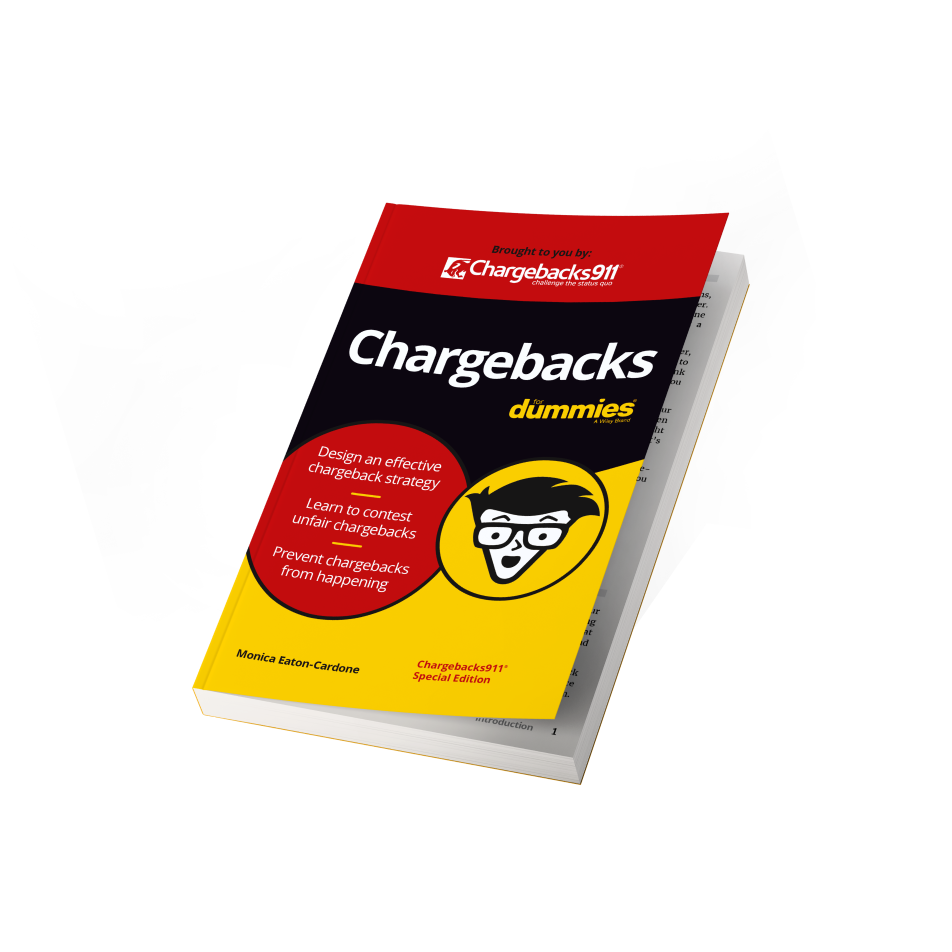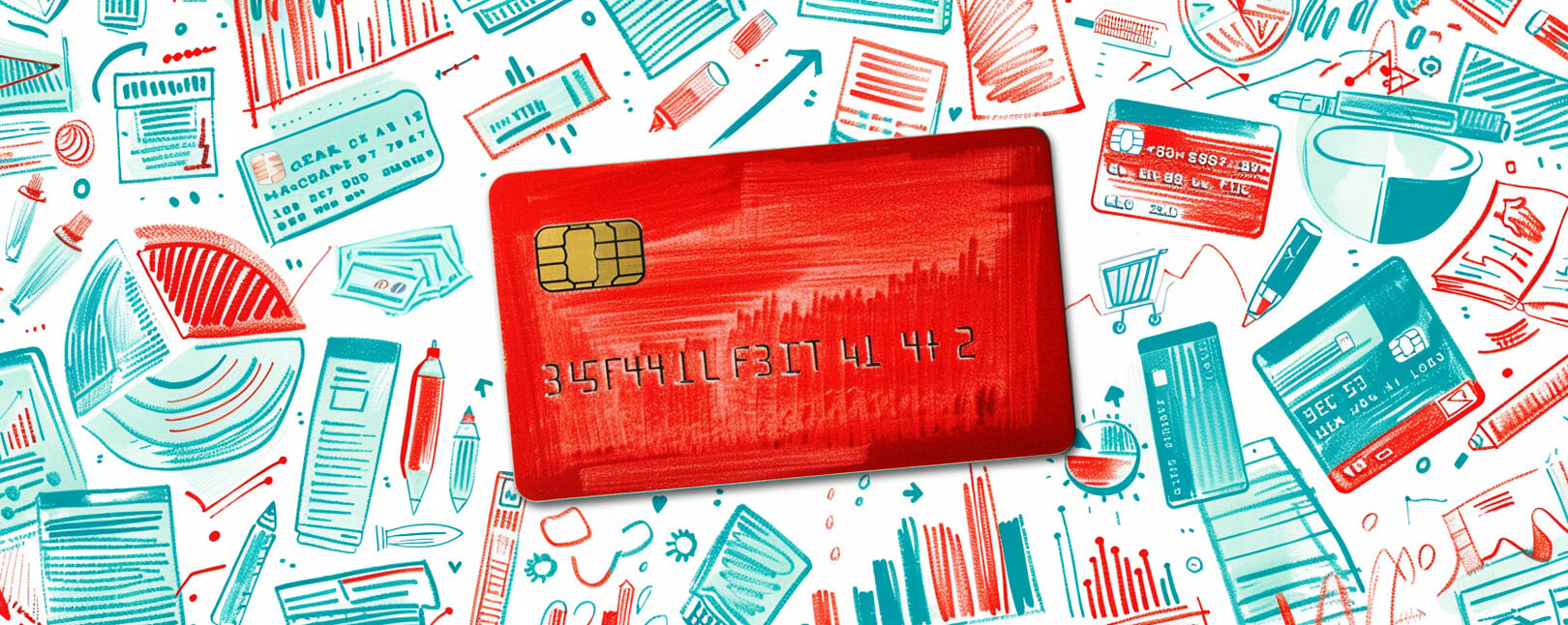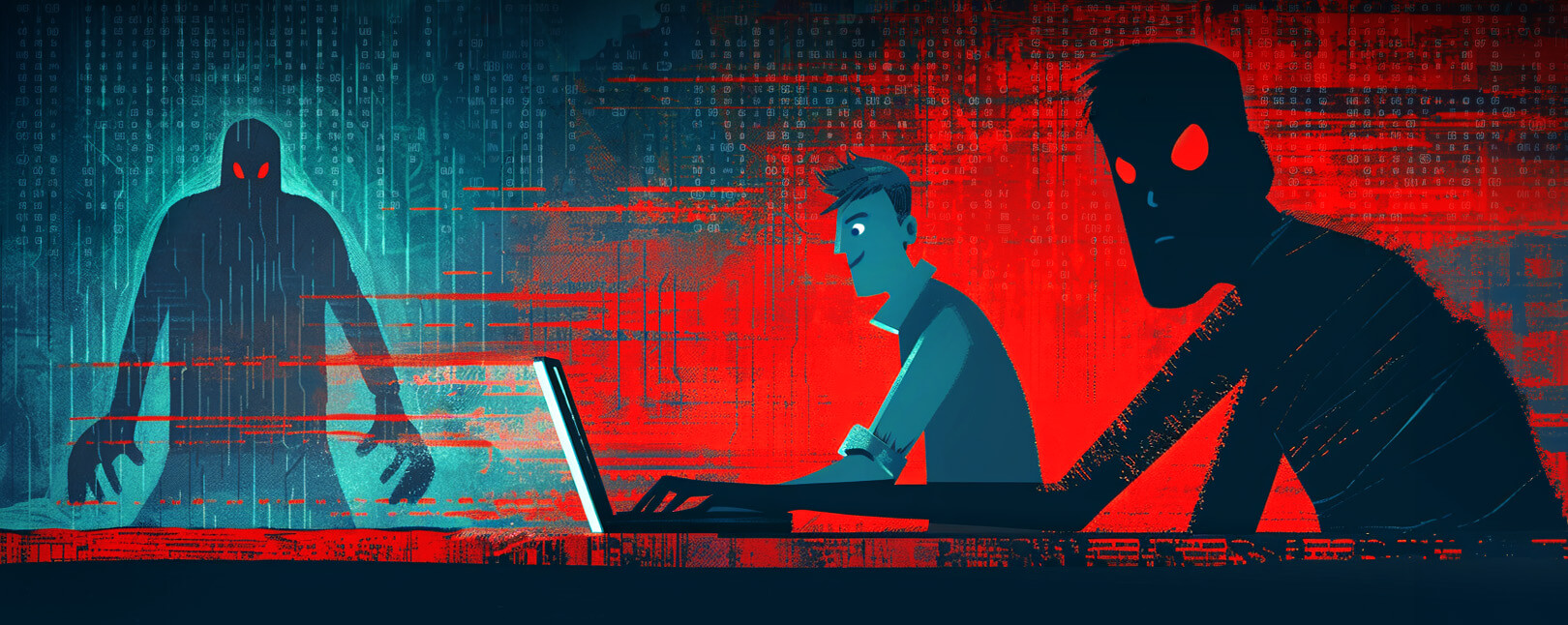Credit Card Fraud Investigations: How do Banks & Other Entities Investigate Unauthorized Transactions?
Someone uses your credit card without your permission. You tell your bank about the unauthorized transaction, and they issue you a provisional credit.
But what then? How does the bank investigate your claim? Can you, the cardholder, go to jail for making a false claim? Who sets the rules that the banks follow?
We’ll dig into all of these questions and more. But first, let’s start at the beginning.
Recommended reading
- The Top 5 Prepaid Card Scams to Watch Out For in 2024
- Address Fraud: How Criminals Swap Addresses to Abuse Victims
- What is Wardrobing? How Can Retailers Stop Refund Abuse?
- Key Credit Card Fraud Statistics to Know for 2024
- Scammers See Opportunity as March Madness Begins
- Man-in-the-Middle Attacks: 10 Tips to Prevent These Scams
What You Need to Know First
Understanding which incidents qualify for credit card fraud investigations can be confusing. Part of the problem is that the parties involved in this process are not necessarily on the same page regarding fraud. The average consumer knows very little about the ins and outs of credit card fraud and is in great fear that an incident will affect their credit card debt. In fact, most don’t even know the difference between their bank and the card network. This can lead to miscommunication and other problems.
As we discussed in a recent blog post, not all fraud activity falls under the mantle of payment fraud. Threats like synthetic fraud and business email compromise (BEC) may be tied to payment fraud, but threats like friendly and family fraud also exist. In these cases, the customer is engaging in abuse that they (intentionally or unintentionally) try to pass off as third-party criminal activity. This can only be revealed during the credit card fraud investigation process, though.
We should also clarify that credit card companies like Visa and Mastercard don’t typically get involved in these investigations. They set the rules, but most payment disputes resulting from alleged fraud are handled by the cardholder’s issuing bank. Even among disputes that progress to the chargeback phase, only about 2% of cases will require the card network’s direct involvement (a process called arbitration).
With all that in mind, let’s examine how the payment fraud investigation process actually works. We’ll begin with how the process is handled on the bank’s end.
How Common is Credit Card Fraud?
Frankly, credit card fraud is more than “common.” It’s a huge problem that touches everyone in the payment process. No bank, cardholder, or merchant is insulated against this problem. It’s also an issue that gets worse year after year.
To illustrate, here are a few startling credit card fraud statistics to be aware of:
- There has been a substantial increase in credit card fraud over recent years. Between 2015 and 2020, reports of credit card fraud jumped by 161.7%.
- Between 2005 and 2019, more than 1.6 billion records were compromised in a total of 10,818 recorded data breaches.
- In 2020, direct losses due to credit card fraud totaled approximately $28.58 billion globally. The US alone accounted for $11 billion of these losses.
- As of the first half of 2022, the number of cards reportedly compromised by skimming was 501% higher than in the same period of the previous year.
- Global losses due to credit card fraud, specifically, are projected to reach $36.13 billion annually in 2024.
In other words, when we say the problem is huge… we mean it.
While banks and merchants are able to leverage technology to help prevent fraud, bad actors seem to innovate at the same rate. So, how does the industry respond to this growing, ever-present threat?
Who Investigates Fraud Claims?
When a fraud claim surfaces, the responsibility for credit card fraud investigation primarily falls under the purview of the issuing bank. This is the financial institution that is responsible for issuing the credit card in question.
But, while the issuing bank is at the forefront of investigating fraud, the complexity and scale of the fraud often necessitates a collaborative approach involving numerous entities. Each of these parties is essential in effectively addressing and preventing credit card fraud.
The extent of the credit card fraud investigation and the involvement of additional entities vary based on the nature and magnitude of the fraud. To illustrate this, here are the other agencies that may be involved in investigating a fraud case:
Law Enforcement
For instances in which credit card fraud is extensive, involves organized criminal activity, or spans multiple jurisdictions (i.e. crossing state lines), law enforcement agencies may be called in. This includes local or national police forces and agencies like the FBI, or even Interpol (in cases with international dimensions).
Payment Networks & Processors
Major payment networks such as Visa, Mastercard, and American Express, alongside payment processors, might engage in the investigative process. This will happen particularly if the fraud has systemic implications or impacts a large number of cardholders across various banks.
Merchants
Merchants are often instrumental in credit card fraud investigations, especially if the scam is linked to breaches in their transaction processing systems. They provide vital transaction data and collaborate with banks and law enforcement to trace fraudulent activities.
Cybersecurity Expertise
Cybersecurity firms may be enlisted to identify the perpetrators or to enhance the security of compromised systems. This is usually done with instances of online fraud or significant data breaches.
Consumer Protection Agencies
Agencies such as the Federal Trade Commission (FTC) in the United States may intervene in cases of widespread fraud affecting a substantial consumer base. Their role is to ensure a proper credit card fraud investigation and safeguarding of consumer rights, and to apply knowledge gained to inform future regulation.
Credit Reporting Agencies
Credit bureaus are frequently notified to mitigate the risk of further misuse of stolen identities. They monitor for unusual activities and assist victims of identity theft in safeguarding their profiles. Their involvement can also help protect consumers’ credit history and insulate them from being held liable from a creditor’s standpoint.
The Credit Card Fraud Investigation Process
When a cardholder disputes a charge, the issuer is expected to examine the details of the case and make a fair, impartial judgment to determine liability. The card networks have extensive and complex guidelines for this, and these rules determine how banks investigate disputes for the relevant card brand.
Step #1 | The Customer Makes a Complaint
If cardholders feel angry, frustrated, or dismissed by your service department, they may file an invalid chargeback out of spite. Providing great customer service is your first step toward chargeback fraud prevention.
Step #2 | Provisional Refund
The bank examines relevant information about the transaction to determine fault. This can be done automatically through programs like Verifi Order Insight or Ethoca Consumer Clarity
Step #3 | The Bank Examines the Transaction
The bank is responsible for reviewing the transaction data as it relates to the customer’s claim and then evaluating whether the claim is reasonable.
Step #4 | The Bank Makes a Decision
The issuer either rejects the inquiry, due to lack of evidence supporting the cardholder’s claim, or files a chargeback on the customer’s behalf.
To help illustrate, let’s look at how this process would work with a cardholder and issuer both based in the US (regulations in other countries may vary).
Once the bank receives the cardholder’s inquiry, Federal Trade Commission (FTC) rules give them 30 days to acknowledge the customer’s claim. In an effort to provide better service to customers, though, banks will generally move quickly on disputes.
If the bank determines that the transaction in question was a fraudulent charge, they may choose to contact the authorities. If there are signs suggesting a larger pattern—especially one that crosses state lines—the US Federal Bureau of Investigation (FBI) could get involved. In most cases, though, the bank will handle the situation themselves through their internal fraud team.
What Evidence Can the Bank Consider?
There are many pieces of evidence on which the issuer can base a decision as part of the credit card fraud investigation process. These may include:
These are just a few examples. Ultimately, the evidence the issuer examines will vary based on the cardholder’s claim.
The bank might also send the merchant an inquiry for more information as part of the credit card fraud investigation process. The merchant should be on the lookout for these information requests, as a timely response could mean the difference between preventing a chargeback on one hand or suffering lost revenue and paying costly chargeback fees on the other.
What Does the Bank Do in Cases of Fraud?
In cases of fraud, cardholder liability is limited by law to $50 for a credit card transaction. For a debit card, the fraud liability limit is $500 or less, depending on when it is discovered and reported. Of course, many banks choose to offer “zero-liability” cards to cardholders, meaning the bank protects the cardholder from any loss from fraud.
If the bank determines the claim of fraud is legitimate, they will advise the customer to immediately contact the three credit reporting bureaus (Equifax, Experian, and TransUnion). The cardholder can request an immediate credit freeze, which will prevent potential damage to the customer’s credit rating.
As for the transaction, the bank may either:
- Decide the merchant is at least partially responsible and file a chargeback to claw back the funds. While this is happening, the money is tied up; neither the merchant, the bank, nor the cardholder has access to the funds.
- Reimburse the customer and simply write off the loss. This is common practice if the dollar value of the transaction does not justify the costs associated with the chargeback process.
While the bank wants to move fast, it can take up to 90 days to investigate the charge and complete an initial chargeback; the process can take even longer if the merchant decides to fight the dispute. This is called representment: the merchant literally “re-presents” the transaction to the issuer, along with evidence to support their claim that the transaction was legitimate and should be upheld.
With representment, the bank must repeat its credit card fraud investigation. They must take any new evidence into account as part of this process. All totaled, it’s not uncommon for the chargeback process to take six months or more to resolve.
Consequences of Getting Caught Committing Fraud
The old adage that “crime doesn’t pay” certainly applies to credit card fraud. Naturally, getting caught committing credit card fraud can lead to serious consequences, both legally and from the financial institutions involved.
Here's an overview of the penalties and repercussions a person might face:
- Reporting to Authorities
This is a procedural step at which banks report the fraud to the authorities. It's the starting point for other legal consequences and can lead to being reported to credit bureaus. - Loss of Financial Services
Those caught committing fraud might be considered a risk by financial institutions. As a result, they lose access to banking services like online banking, mobile apps, and ATMs. - Account Closure
A bank may close an account associated with a known fraudster. This can impact that person’s ability to open new accounts in the future with any bank. - Credit Score Impact
Involvement in fraud can negatively affect a person's credit score, as can losing access to financial services like banking and lines of credit. This would impact their future financial opportunities. - Civil Lawsuits
Offenders might face lawsuits from banks or victims (aside from any criminal penalties the offender may also face). This can result in additional financial burdens and legal costs. - Probation
For less severe cases, or first-time offenses, courts may impose probation as a punishment. This involves regular check-ins and adherence to certain conditions, as well as costly fees. - Criminal Record
A conviction for financial fraud leads to a criminal record. This would affect the accused party’s long-term prospect, like employment and housing opportunities. - Fines & Restitution
Offenders may be ordered by the court to pay significant fines and restitution to victims, compensating them for their losses. This could mean bankruptcy, further impacting the individual’s finances. - Imprisonment
This is the most severe consequence, especially for large-scale or sophisticated fraud schemes. Sentences can vary widely, from relatively minor jail terms to effective life sentences.
As you can see, the consequences of getting caught committing credit card fraud are severe and multifaceted. It impacts both the legal standing and financial future of the individual involved. These repercussions underscore the seriousness with which credit card fraud is treated by both legal systems and financial institutions.
Resolving Claims Outside the Dispute Process
Cardholders have recourse against fraudulent charges in the form of the chargeback process. It’s best for everyone if the cardholder directly contacts the merchant before filing a chargeback, though.
The two parties may be able to collaboratively resolve the situation and avoid a dispute. This would be a “win-win” scenario for everyone: the cardholder could see faster resolution, while banks and merchants are spared the cost of the dispute process.
We recommend that cardholders only turn to the bank as a last resort. They should always try to resolve concerns through the merchant first if possible. For merchants, we strongly encourage adherence to customer service best practices to ensure every customer walks away satisfied.
FAQs
How is card fraud investigation done?
Credit card fraud investigations generally involve banks analyzing transaction patterns and details for signs of unauthorized activity. They may collaborate with law enforcement, merchants, and cybersecurity experts if the situation requires more extensive scrutiny. The process often includes verifying transactions with the cardholder, monitoring for unusual activity, and using technology to trace the origin of the fraud.
Do police handle credit card fraud?
Yes, the police handle credit card fraud, especially for cases in which the fraud is extensive, involves a larger criminal scheme or requires criminal investigation and potential prosecution. Their involvement typically follows reports from banks, victims, or credit card companies.
Can credit card fraud be traced?
Credit card fraud can often be traced, though the ease and success of doing so vary depending on the specifics of the fraud. Banks and credit card companies use advanced tracking and monitoring systems to detect and analyze unauthorized transactions, and they can often trace the origin of fraudulent activity by examining transaction patterns, merchant locations, and digital footprints.
Do credit card fraudsters get caught?
Credit card fraudsters can — and do — get caught. That said, the rate of apprehension varies depending on the complexity of the fraud and the resources allocated to the investigation. Banks, credit card companies, and law enforcement agencies use sophisticated detection and tracking methods. The success of catching fraudsters also depends on the promptness of fraud reporting and the specific circumstances of each case, though.
How long does it take for credit card fraud to be investigated?
The duration of a credit card fraud investigation can vary greatly, often ranging from a few days to several weeks. It depends on the case's complexity, the amount of transactional data to be analyzed, and the involvement of various parties like banks, merchants, and law enforcement. The investigation time frame is also influenced by the speed with which the fraud is reported and the specific procedures of the bank or card issuer involved.
Can they track who used my credit card?
Yes. Tracking who used a credit card is often possible, especially if the fraud involved physical transactions at identifiable locations or digital transactions with traceable IP addresses and device information. Banks and law enforcement can use transaction details, surveillance footage, and digital tracking methods to identify the perpetrator, with various results.













